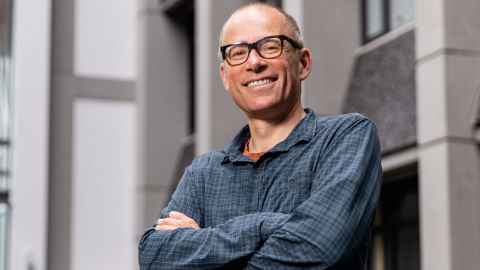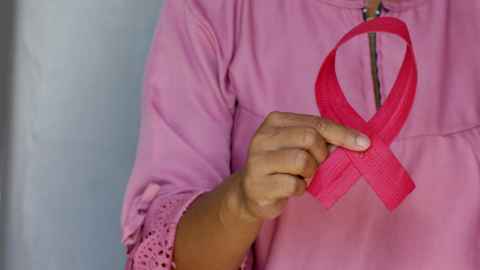New project tackles breast cancer inequity
21 August 2025
A major new project focused on Māori women with breast cancer is launching, with a $5 million grant from the Health Research Council.

University of Auckland Associate Professor George Laking is leading the Whiria te Aka Matua project, aiming to tackle inequities in care for wāhine Māori with breast cancer.
The five-year project, led by Laking, from Te Aka Mātauranga Matepukupuku, Centre for Cancer Research, and Dr Nina Scott from Te Whatu Ora, Health New Zealand, will offer a new model of care.
Wāhine Māori have a 46 percent higher incidence of breast cancer than European New Zealanders, Laking says.
When breast cancer is picked up by screening, Māori women have the same chance of survival as other New Zealanders.
However, about 45 percent of all wāhine Māori who have breast cancer are diagnosed outside of screening programmes, after they notice symptoms, such as a lump.
Māori women with symptomatic breast cancer have a 37 percent lower rate of survival than European New Zealanders, he says.
“The reasons for this are many, but one of the things we urgently need to improve is the design of the health system.
“We hope the model of care we are developing will turn the inequity around, so there’s no longer a survival disadvantage for Māori women with symptomatic breast cancer,” says Laking.
The research team includes experts from Waipapa Taumata Rau, University of Otago, and Waikato and Auckland hospitals.
They aim to enrol 160 Māori women with suspected breast cancer into their study.
The women who are diagnosed with breast cancer will receive wrap-around care for themselves and their whānau.
Three interventions will be offered, starting with the whiri model of care. This involves a health navigator ensuring the whānau know what is happening, what health services are needed and how to get to appointments.
The health navigator will assess the health of the whole family.
“We want to implement a family model of care, in contrast to prevalent models that are centred on individual patients.
“Major health issues have flow-on effects through families. Sometimes one person is diagnosed with cancer and a family member worries themselves sick.
“We want to make sure the health of all people in the family is on track, at a time when they need it,” says Laking.

The next intervention will be Whānau Hauora Portfolios. These will provide a core plan of care, which can be easily updated and communicated with different teams. They will also be a place where whānau can record what happens on the cancer journey.
The third intervention will be prehabilitation, a holistic programme designed to prepare women for the stress of treatments, such as surgery, radiation and chemotherapy.
Prehabilitation - occuring between diagnosis and when treatment begins - could include support with exercise, nutrition, psychological and social needs, and rongoā Māori.
“It will help make sure women are as well as possible at the beginning of their cancer treatment.
“In European populations with cancer, prehabilitation has been shown to shorten the average length of hospital stay and to reduce post-surgical complications,” says Laking.
Two evaluations will be offered – the first, assessing signs of inflammation in the women’s blood samples, to see how these are affected by prehabiltation and cancer treatments.
A holistic evaluation of the value of the entire programme will also be presented.
The kete of resources will be co-designed with wāhine Māori with breast cancer, through interviews and focus groups. Several wānanga will be held to collaborate with the wider health community on the programme.
Laking says what works for Māori women will have benefits for many patient communities.
“We’re focusing our research on Māori women, because that’s the area of greatest immediate need, but the model of care we’re developing will be useful for all New Zealand women with breast cancer.
“This model could be relevant for a wide range of conditions, not just in Aotearoa, but globally,” says Laking.
Media contact
Rose Davis | Research communications adviser
M: 027 568 2715
E: rose.davis@auckland.ac.nz